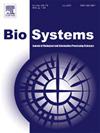Synechism 2.0: Contours of a new theory of continuity in bioengineering
IF 2
4区 生物学
Q2 BIOLOGY
引用次数: 0
Abstract
The methodological principle of synechism, the all-pervading continuity first proposed by Charles Peirce in 1892, is reinvigorated in the present paper to prompt a comprehensive reevaluation of the integrated concepts of life, machines, agency, and intelligence. The evidence comes from the intersections of synthetic bioengineering, developmental biology, and cognitive and computational sciences. As a regulative principle, synechism, “that continuity governs the whole domain of experience in every element of it”, has been shown to infiltrate fundamental issues of contemporary biology, including cognition in different substrates, embodied agency, collectives (swarm and nested), intelligence on multiple scales, and developmental bioelectricity in morphogenesis. In the present paper, we make explicit modern biology's turn to this fundamental feature of science in its rejection of conceptual binaries, preference for collectives over individuals, quantitative over qualitative, and multiscale applicability of the emerging hypotheses about the integration of the first principles of the diversity of life. Specifically, synechism presents itself as the bedrock for research encompassing biological machines, chimaeras, organoids, and Xenobots. We then review a synechistic framework that embeds functionalist, information-theoretic, pragmaticist and inferentialist approaches to springboard to continuum-driven biosystemic behaviour.
协同2.0:生物工程中连续性新理论的轮廓。
协同的方法论原则,即Charles Peirce于1892年首次提出的无所不在的连续性,在本文中被重新激活,以促进对生命、机器、代理和智能等综合概念的全面重新评估。证据来自合成生物工程、发育生物学、认知和计算科学的交叉。作为一种调节原则,协同作用,即“连续性支配着整个经验领域的每一个要素”,已被证明渗透到当代生物学的基本问题中,包括不同基质的认知、具身代理、集体(群体和巢)、多尺度的智力和形态发生中的发育生物电。在本文中,我们明确了现代生物学转向这一科学的基本特征,即拒绝概念二元,偏好集体而不是个人,定量而不是定性,以及关于生命多样性第一原则整合的新兴假设的多尺度适用性。具体来说,协同机制是研究生物机器、嵌合体、类器官和异种机器人的基础。然后,我们回顾了一个综合框架,该框架将功能主义、信息论、实用主义和推理主义方法嵌入到连续驱动的生物系统行为的跳板上。
本文章由计算机程序翻译,如有差异,请以英文原文为准。
求助全文
约1分钟内获得全文
求助全文
来源期刊

Biosystems
生物-生物学
CiteScore
3.70
自引率
18.80%
发文量
129
审稿时长
34 days
期刊介绍:
BioSystems encourages experimental, computational, and theoretical articles that link biology, evolutionary thinking, and the information processing sciences. The link areas form a circle that encompasses the fundamental nature of biological information processing, computational modeling of complex biological systems, evolutionary models of computation, the application of biological principles to the design of novel computing systems, and the use of biomolecular materials to synthesize artificial systems that capture essential principles of natural biological information processing.
 求助内容:
求助内容: 应助结果提醒方式:
应助结果提醒方式:


